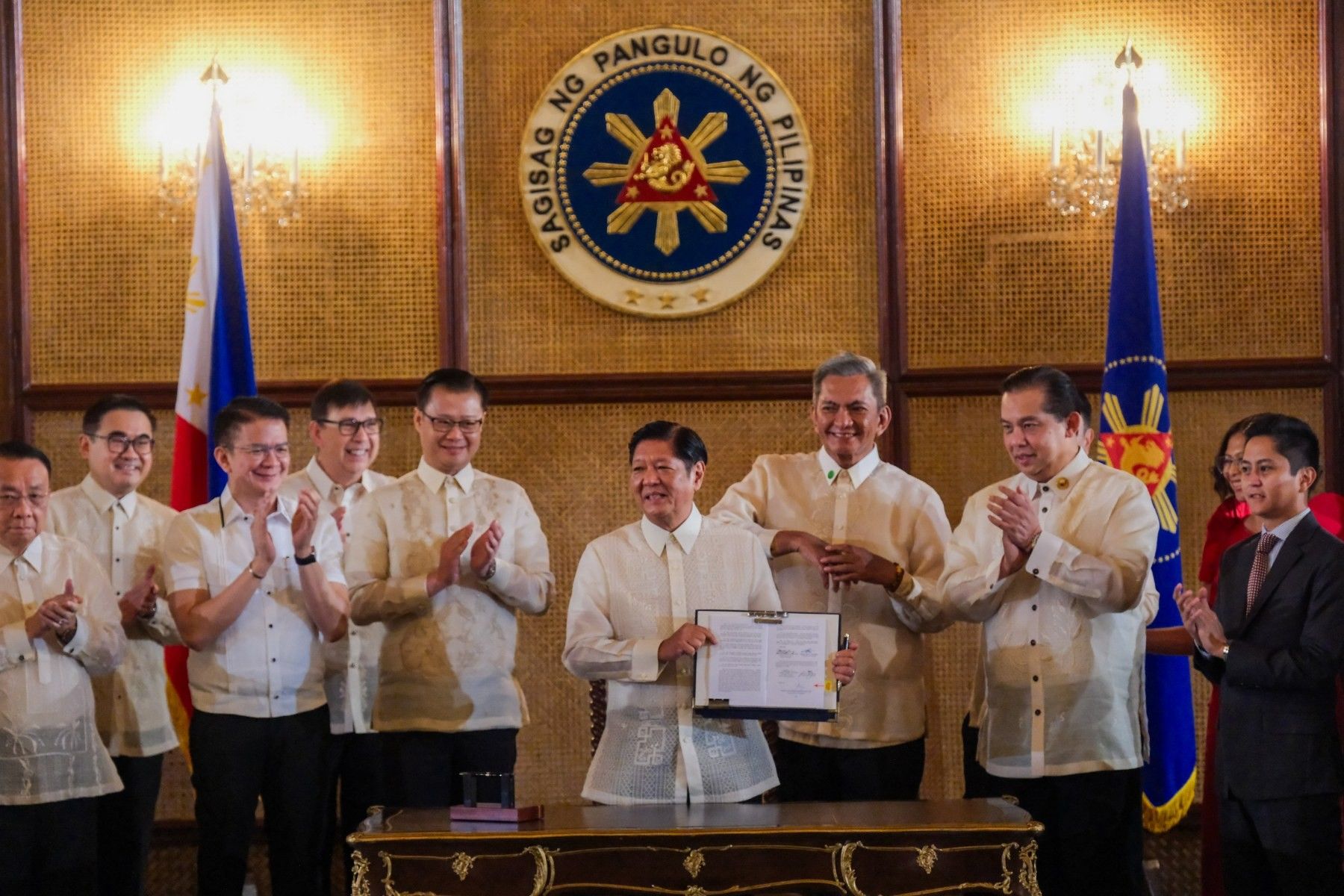Marcos signs law easing tax breaks for businesses, regulating work-from-home in ecozones

MANILA, Philippines— President Ferdinand Marcos Jr. on Monday, November 11, signed a new law that streamlines tax incentives for businesses in the Philippines, including the taxation of companies in special economic zones.
The Corporate Recovery and Tax Incentives for Enterprises to Maximize Opportunities for Reinvigorating the Economy (CREATE MORE) amends the CREATE law, which was created to lower corporate income tax rates for businesses affected by the COVID-19 pandemic.
“We have enhanced our tax regime [and] incentive framework, and making it more inviting for investment—while remaining steadfast in the principles of fiscal prudence and stability. CREATE MORE clarifies the rules of availment of VAT (value added tax) and duty incentives, and further extends its coverage to include non-registered exporters and high-value domestic market enterprises,” Marcos said.
Registered business enterprises are again eligible for VAT incentives for costs that are relevant to their conduct of businesses.
“This means that essential expenses—those reasonably necessary and incidental to their operations—may once again be enjoyed zero-rated, as they were prior to the CREATE Act,” Marcos said.
Other key amendments in the law include a streamlined VAT and excise refund process, limiting compliance requirements, and clarifying local taxation during the Income Tax Holiday and Enhanced Deductions Regime.
There is also greater tax relief for businesses under the Enhanced Deductions Regime, including the reduction of income tax rates from 20% to 25%. There will also be deductions in power expenses and a 50% reduction for tourism reinvestments and trade fair expenses.
CREATE MORE also provides clarified regulations for work-from-home setups in ecozones.
With the pandemic driving many to start working from home, there was a shakeup among businesses within ecozones who receive tax incentives.
The law states that the registered business projects must be within the geographical boundaries of the zone or freeport to avail of the tax break but at most 50% of the workforce can work from home.
“In recognition of emerging work arrangements globally, this legislation also provides registered business enterprises the flexibility to implement Work-from-Home arrangements for up to half of their workforce, all without jeopardizing their eligibility for incentives. By doing this, we position the Philippines as a forward-thinking, agile economy—one that is ready to meet the demands of the digital age,” Marcos said.
CREATE MORE is set to entice business investors to the Philippines while easing the process of doing business. Finance Secretary Ralph Recto said that the law can help create more high-quality jobs.
“CREATE MORE will open the floodgates of more high-impact investments both from our international investors and domestic enterprises. This will not only attract new investments and grow existing businesses to make more money but also enable us to create more high-quality jobs, increase our people’s income, and reduce poverty,” the Finance chief said.
Senate President Francis Escudero also had the same sentiment, saying that business owners have long sought clearer rules of taxation.
“The bottomline is that it will create a more favorable investment climate that will create more jobs, spur progress without harming our revenue base,” Escudero said.
Meanwhile, House Speaker Martin Romualdez also said that there have been complaints from business owners about the ambiguities of the first CREATE law. Lawmakers had to step in immediately to preserve current investments.
“We hope the changes will satisfy our existing investors and entice more foreign capitalists to invest in the country. The enactment of the new law signals our unwavering commitment to keep and attract investments that will preserve jobs and create more opportunities for our people,” Romualdez said.
- Latest
- Trending




























